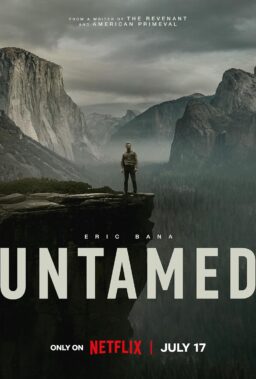CANNES, France–Music from the films of Fellini floats over the Cannes Film Festival, from speakers along the beachfront. It is bittersweet and a little nostalgic, and that reflects the mood as the 56th edition of this festival opens. There are no doubt masterpieces concealed among the official entries, but excitement is muted, and the high point looks to be the world premiere of Clint Eastwood’s “Mystic River” next Friday. It’s rumored the Sean Penn performance is Oscar material.
Eastwood of course is a Cannes favorite; the crowds screaming “Cleent! Cleent!” during his appearance here with “White Hunter, Black Heart” in 1990 were matched in enthusiasm only by the mobs when Jimmy Stewart visited for the revival of “The Glenn Miller Story.” Whether Eastwood will be as rapturously received in these days of French anti-Americanism is a good question, but probably so: At Cannes, Hollywood is considered an independent nation properly appreciated only by the French.
This is the year when many of the films Cannes hoped for were not ready on time, and the Official Selection bears certain signs of being the Official Compromise.
Nevertheless, there are some films I eagerly anticipate, not least: “The Fog of War,” the new documentary by Errol Morris about, and with the participation of, former Secretary of Defense Robert McNamara; “Dogville,” Lars von Trier’s three-hour drama with Nicole Kidman as a fugitive on the run; Gus van Sant’s “Elephant,” which begins on an ordinary day in an American high school; Francois Ozon’s “Swimming Pool,” with Charlotte Rampling as a mystery writer; “The Barbarian Invasions” by Denys Arcand of Quebec, which opens “after the collapse of the American empire,” and Vincent Gallo’s “The Brown Bunny,” about a trip across America in search of love.
The festival usually opens with a French blockbuster, followed by a Hollywood blockbuster, both playing out of competition, and this year’s American BB is the French premiere of “The Matrix Reloaded,” set for Thursday night.
A vast, metallic tent, looking vaguely like the hangar for a pregnant spaceship, has been erected on the jetty beyond the harbor, for the “Matrix” party; if the film’s secretive, Chicago-born directors, the Wachowski brothers, attend it, it will be their first public appearance in four years. These kickoff parties cost untold millions (of dollars, francs, Euros, whatever), but the “Matrix” shindig is unlikely to top the all-time champion, the “Moulin Rouge” party two years ago, at which excitement reached such a fever pitch that Rupert Murdoch, master of media and owner of that film’s studio, climbed up upon a chair, the better to see the hoochie-koochie girls his minions had imported from Paris.
Many journalists arrived here a day late this year, after the national strike called Tuesday in France by workers concerned about their pensions. And there is a certain apprehension about SARS in the air here; a passenger on the London-Nice flight, who was sneezing loudly, found himself surrounded by empty seats on the crowded airport bus trip afterward.
My own festival began Thursday, with the first three of 30 or 40 screenings. I approach the 56th event knowing that, although I may never write a film that plays at Cannes, I have at least written a title that played here. In 1979, I wrote “Who Killed Bambi,” an original screenplay for the Sex Pistols. It was never made, but imagine my gratification to see that “Qui a Tue Bambi?” by Gilles Marchand will play out of competition this year. Marchand, I discover, shares my birthday. There may be something occult involved here.











